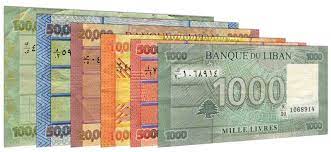
ByKAREEM CHEHAYEB Associated Press — BEIRUT — Lebanon is unable to put its new exchange rate into effect after its outgoing president declared the state budget unconstitutional and refused to sign off on it, officials said Thursday. The Finance Ministry in late September announced that Lebanon would change its pegged exchange rate to the dollar from 1,500 pounds to 15,000 starting Nov. 1, which they called a “necessary corrective action.” Parliament passed the cash-strapped country’s 2022 national budget in September, which included the amended rate. However, it took at least another week of bureaucracy before reaching President Michel Aoun’s office. Passing the 2022 state budget and unifying Lebanon’s several exchange rates are some of the prerequisite reforms needed to reach an International Monetary Fund-approved recovery plan to make the country viable again. The government has adopted several exchange rates for different services outside of the official rate, most recently for phone and internet bills, while an opaque parallel – or black – market rate has been the the dominant exchange rate, resulting in further chaos in the country’s economy.
The Lebanese pound was pegged at just over 1,500 pounds to the dollar in 1997 to encourage investor confidence and to stall hyperinflation after its 15-year civil war. The economy has since struggled following years of political paralysis and turmoil. Ex-housekeeper sues Jeff Bezos, claims discrimination By late 2019, the country started to spiral into what the World Bank says is one of the worst economic crises in over a century. Three-quarters of the population have plunged into poverty and the Lebanese pound lost around 90% of its value against the dollar on the black market. Aoun’s six-year term ended on Oct. 31. His refusal to sign off on the budget means it will automatically pass and go into effect later this month. Government and economic advisors familiar with the matter say Aoun’s inaction was intentional.
An advisor familiar with the matter told The Associated Press that Aoun did not approve several elements of the state budget that went through the government and parliament. Speaking on the condition of anonymity in line with regulations, the advisor added that the final accounts from last year were not completed to close the books under the country’s constitution. They said Aoun did not want to sign off legislation that he deemed unconstitutional. Spokespeople from the Finance Ministry and central bank told the AP that they did not modify their decrees that put forth the new currency peg, but they cannot go into effect unless the budget does as well. Another advisor added that Aoun did not see the budget law as meeting The International Monetary Fund’s expectations, but didn’t want Lebanon to be without a budget. Speaking on condition of anonymity because they were not authorized to speak the press, they added that the delay would allow budget to pass but without the president’s endorsement.
Lebanon’s deeply-divided parliament since late September has failed on several occasions to vote in a successor. Lebanon is also without a full-fledged government, with Prime Minister Najib Mikati’s government functioning in a limited caretaker capacity.



